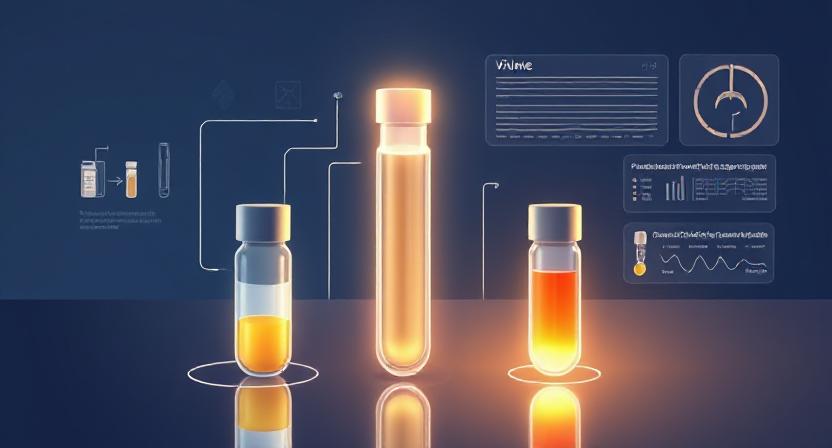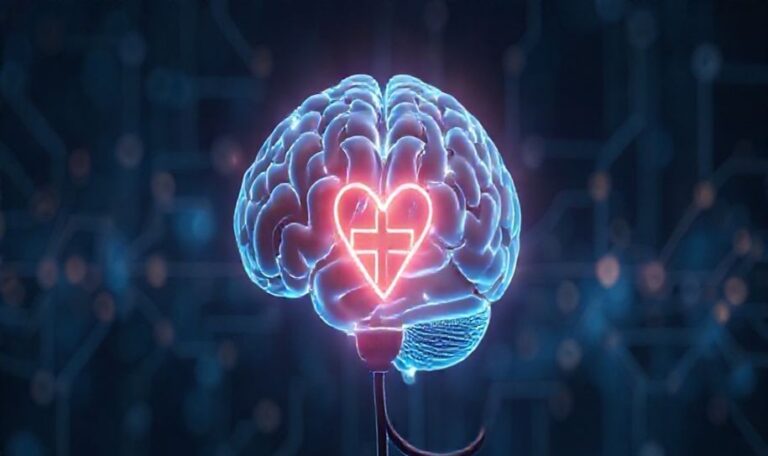Edge of AI in Healthcare Precision and Privacy

AI Diagnostic Systems in Healthcare Artificial intelligence AI is revolutionizing healthcare particularly in the field of diagnostics. Advanced algorithms can now analyze complex medical data...
⏱️ Estimated reading time: 4 min
Latest News
AI Diagnostic Systems in Healthcare
Artificial intelligence AI is revolutionizing healthcare particularly in the field of diagnostics. Advanced algorithms can now analyze complex medical data faster and more accurately than traditional methods assisting clinicians in identifying diseases predicting outcomes and personalizing treatment plans. However while AI diagnostic systems hold tremendous potential they also raise significant ethical concerns related to patient data privacy algorithmic bias and accountability. This article explores how AI is shaping healthcare diagnostics and the critical considerations for responsible implementation.
How AI Is Improving Diagnostic Accuracy
- Medical Imaging: AI algorithms can interpret all types of medical images CT-MRI-ultrasound-PET SPECT etc. Using image segmentation quantification and other techniques the software can find abnormal areas that may remain unseen by a radiologist or a physician.
- Electronic Health Records EHRs: AI analyzes health records to find patterns and define potential causes of a patient’s symptoms especially when multiple conditions are present.
- Laboratory Tests: Machine learning algorithms identify correlations between abnormal lab test parameters detect patterns that point to a certain disease and generate a list of possible diagnoses.
Advancements in Early Disease Detection
- Cancer Detection: AI algorithms have achieved up to 94% accuracy in detecting tumors in patient scans surpassing the performance of professional radiologists. GlobalRPH
- Cardiovascular Diseases: AI models can identify early signs of heart disease by analyzing patterns in EHRs and lab results enabling timely intervention.
- Neurological Disorders: Deep learning approaches combining MRI scans genetic data and biomarkers have been used to diagnose Alzheimer’s disease with greater than 95% accuracy.
These advancements are reshaping preventive care allowing for earlier and more accurate diagnoses which can lead to better patient outcomes.

Real-World Applications
Viome Health has developed AI-driven at-home testing kits that analyze saliva stool and blood samples using RNA analysis. These kits provide personalized nutrition and supplement recommendations and are expanding to detect early signs of diseases such as oral and throat cancer.
AIIMS Patna India: Incorporated AI-powered medical devices to enhance diagnostic accuracy for conditions like cancer heart diseases and neurological disorders using imaging techniques such as X-rays MRIs and CT scans.
DISHA Health AI Initiative: Launched to integrate AI into health screening processes aiming to enhance early detection risk assessment and prevention strategies for non-communicable diseases and cancer.
Key Applications:
- Medical Imaging
AI algorithms analyze X-rays MRIs CT scans and ultrasounds to detect abnormalities. For example deep learning models can identify early-stage cancers with higher accuracy than conventional radiology alone. Studies indicate AI-assisted imaging can reduce false negatives and improve diagnostic confidence. - Predictive Analytics
By examining patient histories lab results and genetic data AI can predict disease risks such as diabetes or cardiovascular conditions. Predictive models help clinicians implement preventive interventions and tailor treatment plans based on individual risk profiles. - Pathology and Histology
AI systems analyze biopsy slides identifying cancerous cells and grading tumors. Automation in pathology reduces human error standardizes interpretation and accelerates diagnosis. - Remote Monitoring and Telemedicine
AI-powered diagnostic apps and wearable devices enable continuous monitoring detecting irregularities such as arrhythmias or glucose spikes in real time. These tools extend healthcare access to underserved populations.
Despite these advantages AI diagnostic systems raise serious ethical concerns that healthcare organizations must address.
Patient Data Privacy
AI relies on access to large volumes of sensitive medical data. While data anonymization and encryption techniques exist risks persist.
- Unauthorized Access: Breaches of EHRs could expose private patient information.
- Data Sharing Risks: AI models often require data from multiple sources creating potential privacy vulnerabilities.
- Informed Consent: Patients may not fully understand how their data is used for training AI models.
Algorithmic Bias
- Racial and Ethnic Bias: Some diagnostic AI systems underperform in detecting conditions in underrepresented populations.
- Gender Bias: Certain algorithms may be less accurate for women due to historical underrepresentation in datasets.
- Socioeconomic Bias: AI predictions can inadvertently favor patients from wealthier demographics.
Accountability and Transparency
- Clinical Responsibility: Who is accountable when an AI system makes an incorrect diagnosis?
- Explainability: Transparent AI models are crucial for clinician trust and patient safety.
- Regulatory Compliance: Ensuring AI tools meet legal and medical standards is complex and ongoing.
Case Studies Highlighting Impact
- Google Health and Diabetic Retinopathy
Google Health developed an AI system capable of diagnosing diabetic retinopathy from retinal images. Clinical trials in multiple countries showed accuracy levels comparable to ophthalmologists improving early detection in regions with limited specialists. - IBM Watson for Oncology
IBM Watson leverages AI to recommend personalized cancer treatments by analyzing patient records and medical literature. While promising, the system has faced scrutiny for biases and occasional inconsistencies highlighting the need for continuous oversight. - AI in COVID-19 Detection
During the COVID-19 pandemic AI systems analyzed chest scans to detect viral pneumonia. These tools accelerated diagnostics and triage demonstrating how AI can enhance healthcare response during emergencies.
To maximize benefits while mitigating ethical risks healthcare organizations should.
Related Posts

Function Health: $298M Funding for AI Health Insights
Revolutionizing Healthcare with AI: Function Health’s $298M Series B The healthcare industry is experiencing a...
November 24, 2025

Emm Secures $9M for Smart Menstrual Cup Tech
Emm Secures $9M Seed Funding for Smart Menstrual Cup Development Emm has successfully raised $9...
November 19, 2025

Oura Ring Valuation Soars to $11B After Series E Round
Oura Ring Secures $875M, Valuation Hits $11B Oura, the company renowned for its advanced health-tracking...
September 22, 2025
1 Comment
-
Pawan
I apologize for dropping a link here, but I believe it might help clarify my question. Given the complexities surrounding patient eligibility criteria and the integration of machine learning into clinical trial pre-screening processes, how can researchers ensure that these tools effectively account for the nuances in patients’ medical histories? I’m curious if there are specific strategies that could bridge the gap between algorithmic recommendations and clinical judgment, particularly in light of the information discussed at […]..











I apologize for dropping a link here, but I believe it might help clarify my question. Given the complexities surrounding patient eligibility criteria and the integration of machine learning into clinical trial pre-screening processes, how can researchers ensure that these tools effectively account for the nuances in patients’ medical histories? I’m curious if there are specific strategies that could bridge the gap between algorithmic recommendations and clinical judgment, particularly in light of the information discussed at […]..